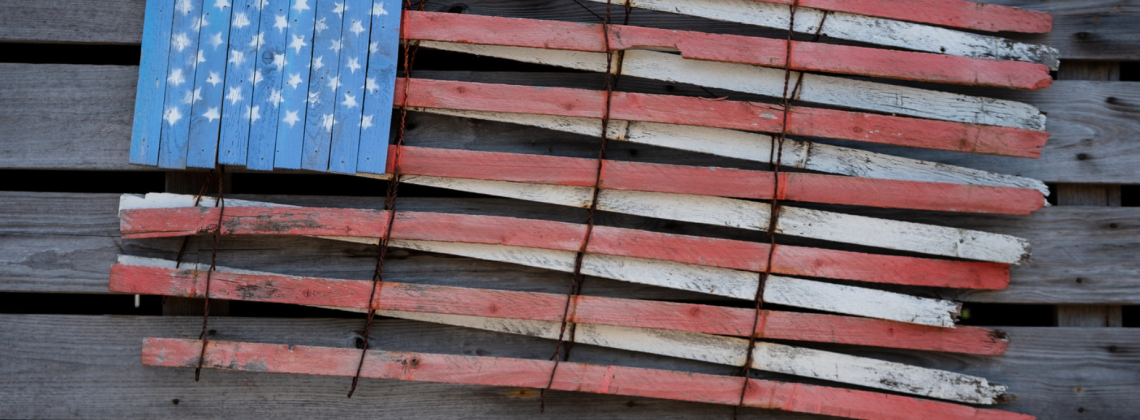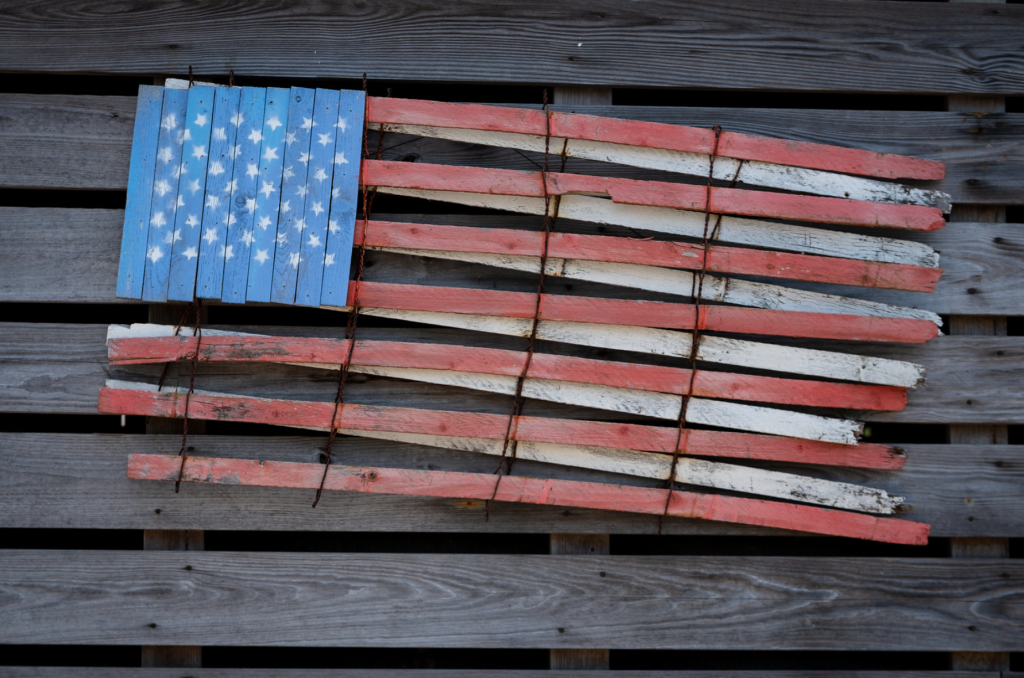

In praise of dissent
Conservative Californians move to Florida, fleeing high taxes and progressive-activist educators, while progressive Oklahomans move to Chicago to access transgender medical care. Welcome to the “great sort.” Behold red states become redder and blue states become bluer as people cluster in like-minded political spaces: states, cities, zip codes. The exceptions just prove the rule. Rural Oregon does have a host of red counties, and college towns like Oberlin float like cobalt satellites above the bright-red farmlands of Ohio. But the overall pattern is clear.
Perhaps this demographic sorting was bound to happen. Maybe there is something to be said for the phrase “good fences make good neighbors.” But dangers lurk. As political parties have come to monopolize certain geographical and institutional locations, democratic dissent has become rarer and democratic dialogue endangered.
It wasn’t always like this. When I started college, Reagan was popular in what we now call blue states, and Democrats still won elections in statewide races in the South. One could point to more-liberal and more-conservative regions, but political views were more diffuse, more spread across the map. And for the most part expressing dissent carried less risk.
I still believe in progress. I believe that, all things considered, the world is a better place for most people most of the time than it was a generation ago. But it’s also true that the moral arc of the universe is a jagged one, and things sometimes move in reverse. It’s this jagged image I keep in mind as I pen these words in praise of dissent, an endangered democratic art.
I started college in 1980 with no political convictions to speak of—or none beyond a general belief in the benevolence of the U.S. and a general appreciation for the religious liberties that were denied to those behind the “iron curtain.” I’d just graduated from a Christian high school in the South and had spent the first fifteen years of my life in Mexico, raised as the child of missionaries. I would have been surprised to learn of the political role that evangelicals would play over the next few decades. To be sure, there were folks like my uncle in Tulsa who were campaigning for Reagan. But on the other hand, there was that grandfather of mine, an Arkansas-born coal miner and a die-hard Democrat, who looked like he belonged on the set of John Ford’s Grapes of Wrath. And hadn’t Carter, a Democrat, made a big deal about being a born-again Christian?
My naïve detachment from politics met its acid test during my sophomore year, in the early years of the Reagan Administration, when I met a student who had just arrived from Guatemala as a political exile. I still have these vivid memories of walking into his dorm room to the arresting sight of a picture hung above his bed, in the manner of a memorial. I remember how he informed me, with the stoic idealism of the young Che Guevara in The Motorcycle Diaries, that the picture was of his late older brother, a leftist doctor just murdered (or “disappeared”) by the Guatemalan government.
Having lived in Mexico as a child, I had no trouble understanding the desperate straits that were driving Latin American peasants and workers to take up arms: the destitution, the iron-clad class divide. But it came as a shock to learn that pro-U.S. governments of Latin America, which I’d always considered more or less benign, were murdering civilians on a scale that rivaled the Holocaust. Ernesto’s brother had been just one of the hundreds of thousands of victims of a horror that was happening across the region.
Of the two parties, it was the Democrats who, in that particular context, carried the banner of human rights. Carter, just out of office, had stood up to right-wing Latin American dictators and “death squads” in a way that Reagan, in his Cold-War zeal, never would. And that became the basis for my own dissenting political views. I felt like quite an outlier when in 1984, in Stillwater, Oklahoma, I cast my first vote for Walter Mondale. I was out of step not just with the average Oklahoma voter but with the naive patriotism that (as far as I could tell) had taken hold across the map. There was no great social cost for me. I felt more ignored than stigmatized—like a sullen, reluctant participant in a series of pep rallies.
In today’s lingo, I’ve been a blue voter (albeit ambivalent, and sometimes dissenting) since then. I recall an acute ambivalence in 2000, after Bill Clinton’s two terms in office, when it was obvious that the Democratic establishment had shifted its main allegiance from the traditional working class (like my Arkansas grandparents) to the white-collar managerial class (heretofore known as yuppies). It was Ralph Nader who called attention to the growing divide between the “haves” and the “have-nots” that had been overseen not just by Republican administrations but now under Clinton too. Nader was an outsider who criticized neoliberalism in the name of a more traditional brand of liberalism. He was a prophet railing against the abandonment of places like Flint, Michigan and Booneville, Arkansas (my grandparents’ hometown), places that had begun a spiral of descent into boarded-up, dilapidated ghost towns.
The Nader campaign was a moment of dissent within Blue America. It was a reminder that—as Michael Lind puts it—politics doesn’t just have the standard left-right axis. It also has an insider-outsider one. I’ll leave the question of whether Nader’s campaign was a net plus or minus to the historians. But he was saying things that needed to be said.
But it’s the unprecedented events of this last decade (since 2015 more or less) that have me concerned for the status of political freedom and dissent as such. I don’t think that most Americans need to be informed about the intense political tribalism that has engulfed us. It’s not hard to picture some future dystopian scenario where America becomes two self-contained monoliths (all walls and no bridges) in a perpetual state of cold (if not outright) civil war.
If there’s an antidote to all this, it will have to be found in something like John Inazu’s “confident pluralism.” Inazu argues that if we’re to “survive and thrive through deep difference” we must embrace a robust interpretation of First Amendment rights: a broad inclusion of groups that might have profound disagreements about the common good, and (of course) a broad acceptance of dissent.
I had something like this in mind in 2020 when I joined Braver Angels, an organization committed to political depolarization. The name references Lincoln’s appeal in his first inaugural address to “the better angels of our nature.” Now, in the midst of what some are calling a “cold civil war,” the organization proposes to build bridges across ideological divides. If we’re ever to succeed in this de-polarizing task, we’ll need to honor dissent between and within Red and Blue spaces. We’ll need a robust pluralism.
What would this look like in practice? Well, there are instances of it here and there, scenarios that I’d like to see replicated. There is, for example, Bentonville, Arkansas: bohemian bicyclers and downtown pubs confident enough to brandish rainbow flags, dissenting from the prevailing political climate of the state. On the other side of the ideological spectrum, there is the traditionalist Catholic Robert George, making his case for the common good in the hallowed halls of Princeton, placing the words of Pope Benedict alongside those of Michel Foucault.
These bold anomalies are what depolarization and confident pluralism look like. As long as there are examples of this sort, there is hope.
Mark Griffin is Professor of Spanish at Oklahoma City University. He was born and raised in Mexico, where his parents served as career missionaries. He is co-author of Living on the Borders: What the Church Can Learn from Ethnic Immigrant Cultures (Brazos Press, 2004) and has written articles on modern Latin American and Spanish literature.
Photo: Austin Kirk